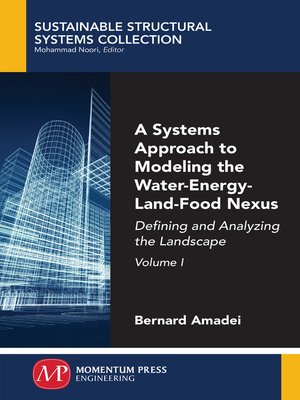A Systems Approach to Modeling the Water-Energy-Land-Food Nexus, Volume I
ebook ∣ Defining and Analyzing the Landscape
By Bernard Amadei

Sign up to save your library
With an OverDrive account, you can save your favorite libraries for at-a-glance information about availability. Find out more about OverDrive accounts.
Find this title in Libby, the library reading app by OverDrive.



Search for a digital library with this title
Title found at these libraries:
| Loading... |
Over the next 50 years, rapid population, urbanization, and economic growth worldwide will create unprecedented demands for water, energy, land, and food (WELF) resources. The discussion on how to meet human needs for WELF resources and how to guarantee their respective securities has changed over time from looking at all four sectors in isolation to understanding their interdependency through the so-called WELF nexus. The approach presented in this book responds to the overall agreement in the WELF nexus literature that the management and allocation of WELF resources at the community level need to be examined in a more systemic, multidisciplinary, participatory, and practical manner while seeking to increase synergies and reduce trade-offs.
This book was written to explore the value proposition of that approach. Volume 1 focuses on defining the landscape in which the nexus operates and outlines the proposed methodology. Volume 2 explores the quantitative and qualitative modeling of the nexus and landscape using system modeling tools including system dynamics. It presents a road map for the formulation, simulation, selection, and ranking of possible intervention plans. The proposed methodology is designed to serve as a guide for different groups involved in the science and policy decision aspects of the WELF nexus within the context of community development. The methodology focuses mostly on WELF-related issues in small-scale and low-income communities where securing resources is critical to their short- and long-term livelihood and development.






